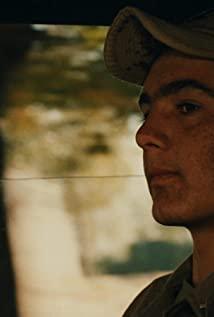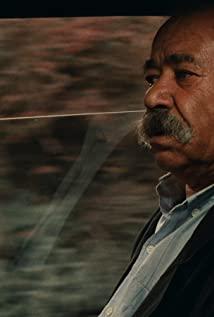For me, "death" has never been so far away. It's easy to misunderstand. I don't take medicine or jump off a building. Instead, I think that death is often accompanied by regeneration, a kind of baptism, a kind of After discarding, shuffling and re-understanding, this is of course not what Buddhists call reincarnation, but it really happens to every head erected by the neck, and this head does not exclude the occasional adjustment of the erected inside. The strings of a piano.
"The Taste of Cherry" is a story about a person who is stubborn and has no intention of tuning, but at some last moment of his life, he is shaken and may eventually "resurrect" - an open ending that you can imagine freely. In fact, the change of mind often takes a long time. The process is not smooth, and it is even full of quarrels, maneuvers and compromises. When finally bravely picking up a professional attitude towards the old piano, the music that is often inspired in my mind is Wonderful, it doesn't mean that you have to change your mind and be a different person from before, but the mind itself is a pendulum that wobbles, but no matter left or right, it is always looking for and around a gravitational meeting point.
The story goes like this, Buddy, driving an SUV, was looking for helpers in the empty and barren land, that is, after he took a full bottle of sleeping pills and lay down in a grave he had dug for himself, he filled twenty shovels of soil, each shovel of soil. The reward is 10,000 tons. I found two, one of them was a simple and honest peasant soldier. His dual identity satisfied the driver, the farmer knew how to dig and fill the soil, and the soldier knew how to face death. But after Buddy told the purpose, the peasant soldiers jumped out of the car and ran away as if they had run into a ghost. The second is a poor preacher of God, a seminary student. The dialogue between the two is quite intriguing. Buddy did not tell the reason for suicide, but tried to exaggerate his unbearable pain and had to commit suicide. One of the lines was like this,
"I know suicide is a very serious sin, but so is unhappiness. A very serious sin, when you are unhappy, you hurt others, isn't that a sin? When you hurt others, isn't it a sin? Hurting your family...friends, hurting yourself, isn't it a sin? If It's not a sin for me to hurt you, but it's a sin for me to kill myself?"
Seeing this, I can hardly find a cogent reason to refute his suicide attempt. I just don't understand what kind of pain can I have to hurt others, including family, friends? The reason is naturally my concern. Like the old man who appeared later, you must know the cause before you can find a cure. A thought flashed through my mind. It is not necessary to cause pain to others. I can also cause pain to others when I am happy. When my face is full of emotions, others will often feel uncomfortable. , I followed his logic, and finally had to admit: it turns out that I am a criminal who makes others miserable all the time, no matter when I am suffering or when I am happy.
For a moment I didn't know what to do. Do you want me to live in isolation and "go to the wilderness"? Or to be expressionless, neither happy nor sad? If that's the case, don't I really want to kill myself? There is obviously a problem with this logic. If you commit suicide as long as there is pain, isn't the human race extinct early? The rigid professor in Little Women sang passionately on the piano, "Only those who know longing understand my pain, the loneliness separated from joy and joy, I lost consciousness, the flames swallowed me, and in love And after the people who knew me were gone, only those who knew the longing understood my pain", the little woman Josephine listened with tears in her eyes, and finally the rebellious Josephine married the impoverished Josephine. 's professor. It can be seen that suffering naturally has its irreplaceable importance, and can even set up a bridge for spiritual and spiritual communication. I still firmly believe that people can improve themselves better when they are in pain. Happiness may be good for the mood, and pain is good for the brain and mind.
As for if happiness has the lethality of a bayonet - this cannot be denied - at the same time, it can also be the pistachio of another group of people if you can't obliterate it anyway. Kafka's sensitive advice can be accepted, "The heart is a house with two bedrooms, one for pain, the other for happiness, and one must not laugh too loudly, or the laughter will wake up the neighbors in the next room. pain".
For me, whether it is because of pain or happiness, or even Haizi-style martyrdom, I feel a little sympathy in my heart, but at the same time I feel a little contempt. "It's better to die than to live", it is true that it can sometimes be an excuse to survive, but for most people, when you are alive, you don't cherish this short life experience, although sometimes it can make you physically and mentally exhausted. , miserable, I can hardly imagine that you will not be on pins and needles in heaven.
I forgot where I saw the line, I've learned to look at the world in all of its darkness and evil, and still LOVE it. Probably.
If a cherry has the potential to save souls that have nowhere to go, a few sips of sweet and astringent wine are even better.
View more about Taste of Cherry reviews











